Notion has finally released its brand-new calendar app, Notion Calendar and it's all about making scheduling easier and better. This app is a big upgrade from Cron, another calendar app that Notion took over a while ago. It’s yet another way Notion is making an effort to become the only app your company needs to do pretty much everything.
In this comprehensive guide, we'll take you through the ins and outs of getting started with Notion Calendar. You'll learn how to customize it to your liking, sync it with your databases, and use it to collaborate with your team more effectively. So, let's dive in and discover how Notion Calendar can transform your scheduling.
{{cta-1}}
Getting Started with Notion Calendar
The Notion Calendar is an effective online calendar tool that provides a complete solution for managing your timetable, assignments, and appointments in a single location. If you’ve ever used Cron, the calendar app Notion acquired in 2022 and has been operating ever since, you basically already know the deal with it.
To begin using Notion Calendar, you'll need a Google account. If you're currently using Outlook or Apple Calendar and don't have a Google account, it's time to create one – a free account suffices for personal use.
Simply visit calendar.notion.so and sign in using your Google account. Notion Calendar is available as a web application and also as a desktop or mobile tool for both Windows and Mac, offering flexibility to use it across different platforms.
Access and Setup
- Desktop app: First, download and install the Notion desktop app. Once installed, sign in and navigate to the calendar section.
- Web app: Alternatively, you can access the it through the web app. Simply go to the Notion website, log in, and select the calendar option.
Initial Configuration and Customization
Configuring and customizing your Notion Calendar is a crucial step in making it a tool that truly aligns with your personal or professional scheduling needs. It offers a range of customizable options, especially in how events are displayed and managed in the menu bar, and how calendar views can be customized, giving you control over what information is prioritized and how it's presented.
Selecting Events for the Menu Bar
- Choose calendars: In Settings → Menu Bar, select which calendars to include. You can also add multiple calendars.
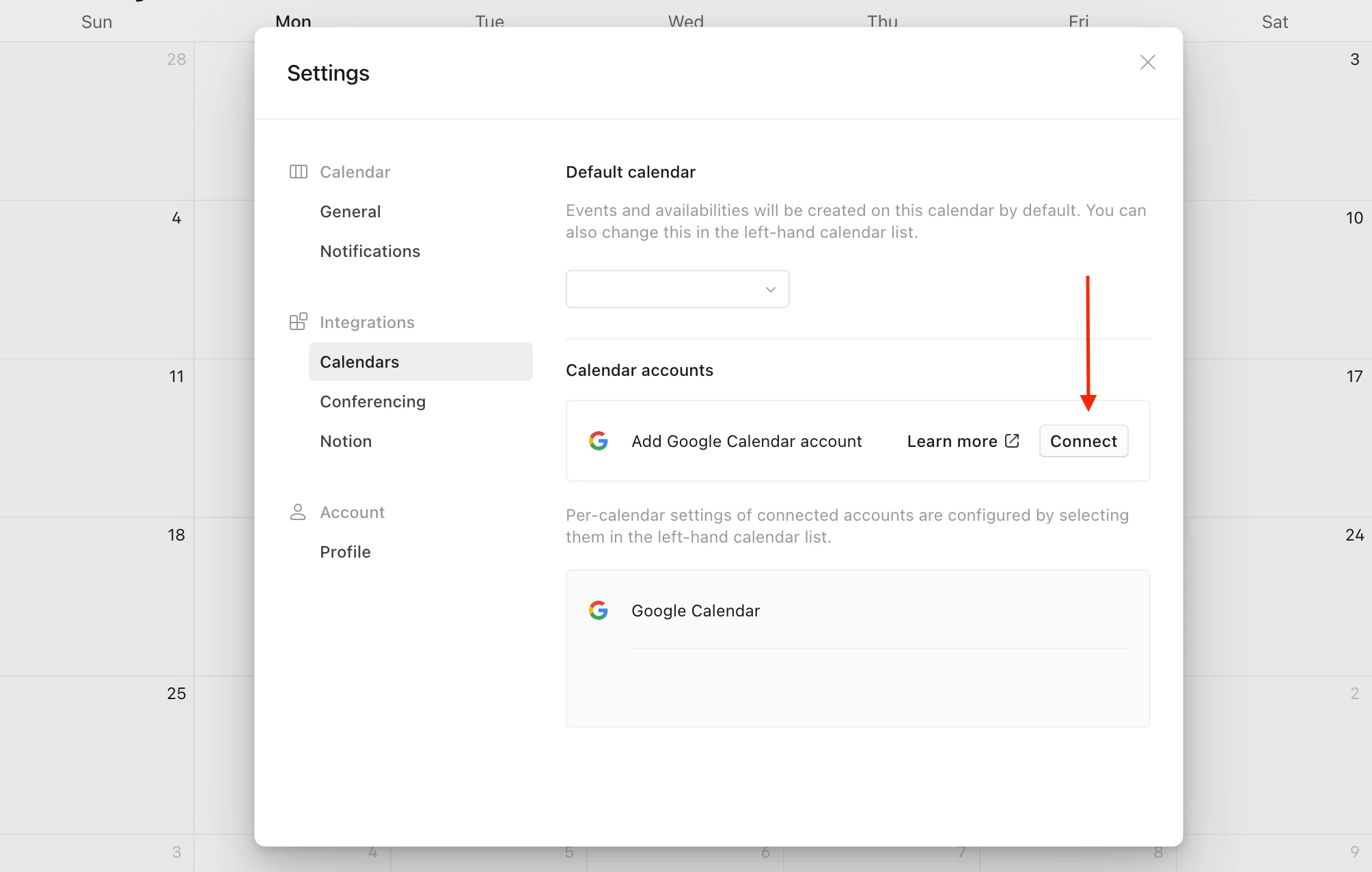
Event Display Customization
- Advance notification: In Settings → Menu Bar, choose how far in advance to be notified about an event.

- Display preferences: Decide if the menu bar shows the Event title or Event time, allowing you to prioritize the information most important to you.
Calendar View Customizations
- Adjust Viewing Days: Change the number of days shown in your calendar with the ± option near the last displayed date.
- Week Numbers and Weekends: In Settings → General, under Calendar view, you can choose to show or hide week numbers and weekends.
- Hide Declined Events: To exclude declined events, turn off the 'Declined events' option in settings.
- All-Day Section: Collapse or expand the all-day event section using the arrows in your zone column or Ctrl/⌘ + K.
- Start of the Week: To set a starting day of the week, go to Settings → General and under Start week on:, choose a day of the week.
- Grid and Interface Scale: Adjust the density of your calendar and the interface scale via the View option in the top bar.
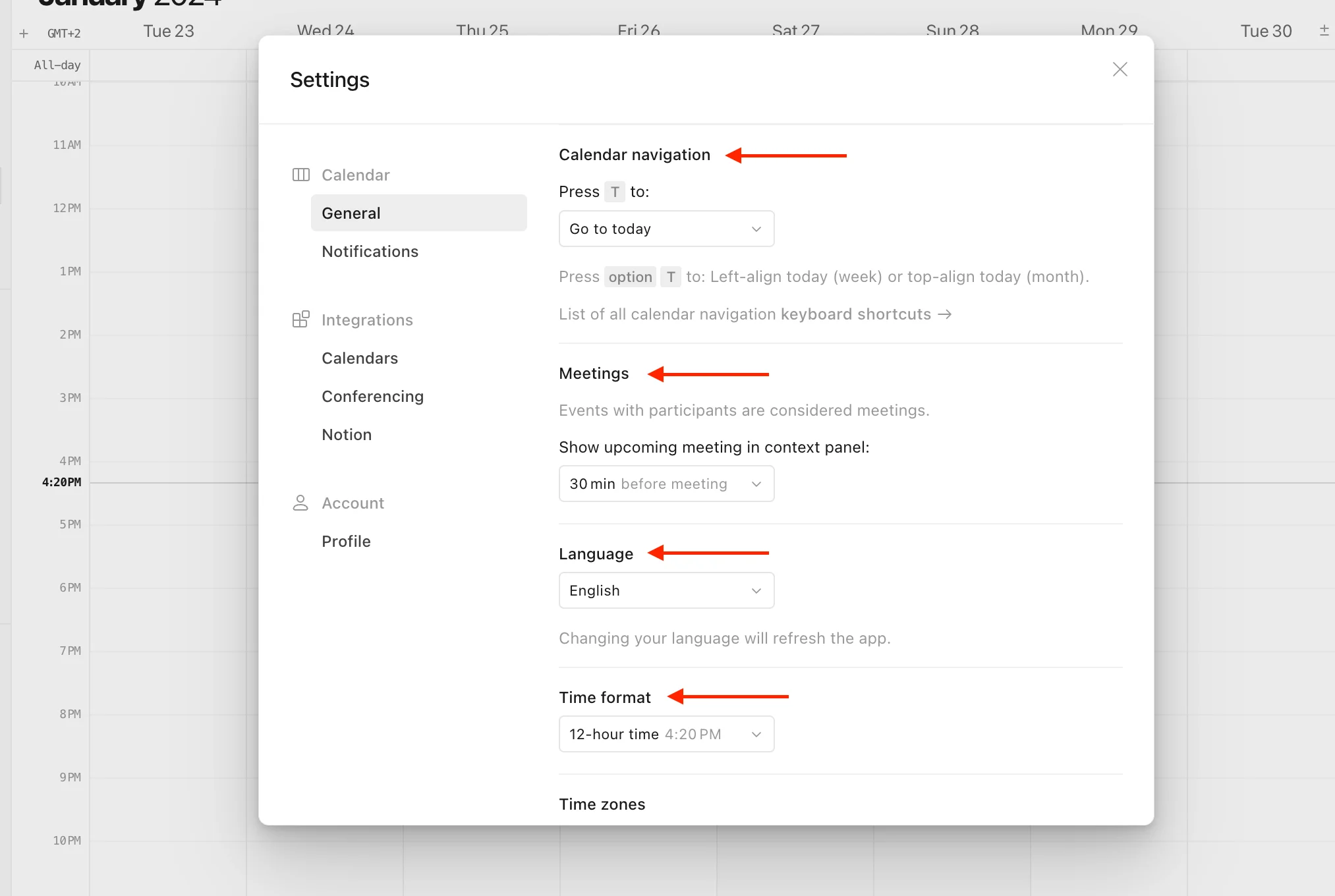
Syncing Notion Databases with Notion Calendar
Linking Databases and Calendar
One of the standout features of Notion Calendar is its ability to integrate seamlessly with Notion databases. Here’s a straightforward process for linking your Notion Calendar to a Notion database.
- Connect your Notion account to the Notion Calendar app.
- Set up a Calendar view in a database: This step is crucial. You can either utilize an existing Calendar View within Notion or create a new one on the database page. The key is to ensure that there's a Calendar View of the database somewhere in Notion. The date property you select here is what will be displayed in Notion Calendar.
- Use the "Open in Calendar" feature: After setting up a Calendar View on a database page, a button will appear in the top right corner. Click this to open Notion Calendar in a web browser. Unfortunately, it doesn’t redirect to the app directly – a bit of an oversight.
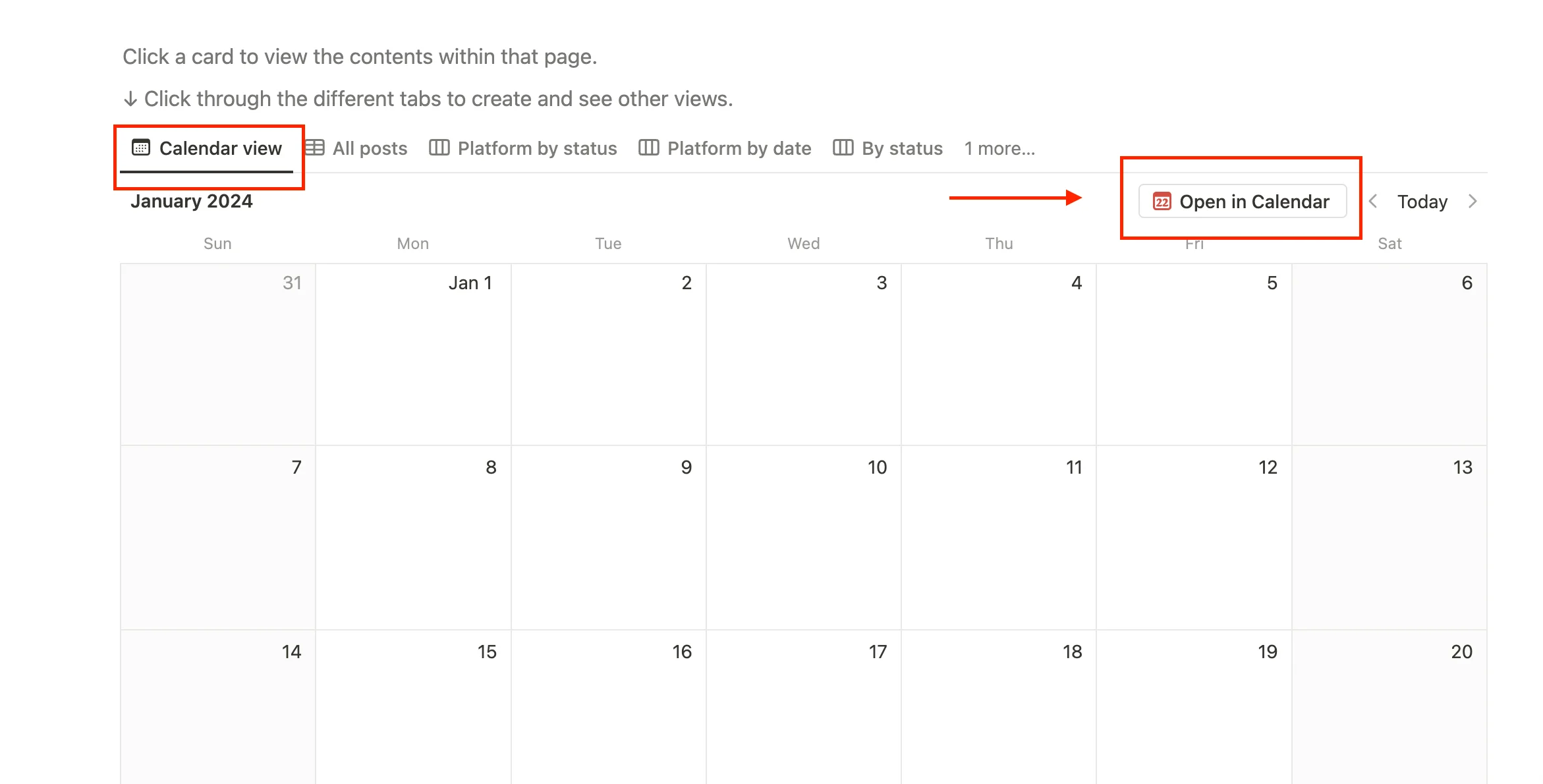
- Manually add a database: If you’ve already got a Calendar View in a database, you can manually add this database to Notion Calendar. Within the app, click the three dots next to your workspace name and choose "Add Notion database." You can then select which databases with Calendar Views to display.
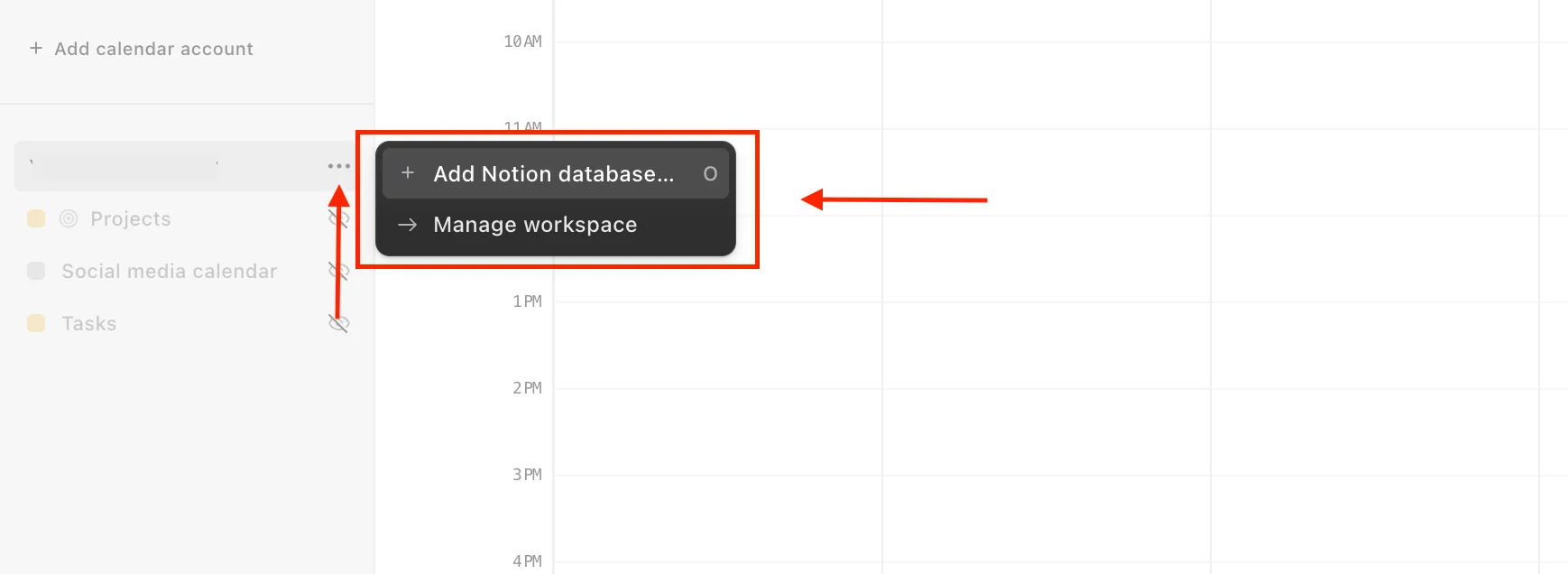
Also, one handy feature is adding Notion pages to your calendar events. When you create an event in Notion Calendar, there's a spot to add links or documents. You can either create a new Notion page right there or attach one you've already made. This way, everything you need for a meeting or event is right at your fingertips, whether you're in the Notion Calendar or just looking at your menu bar.
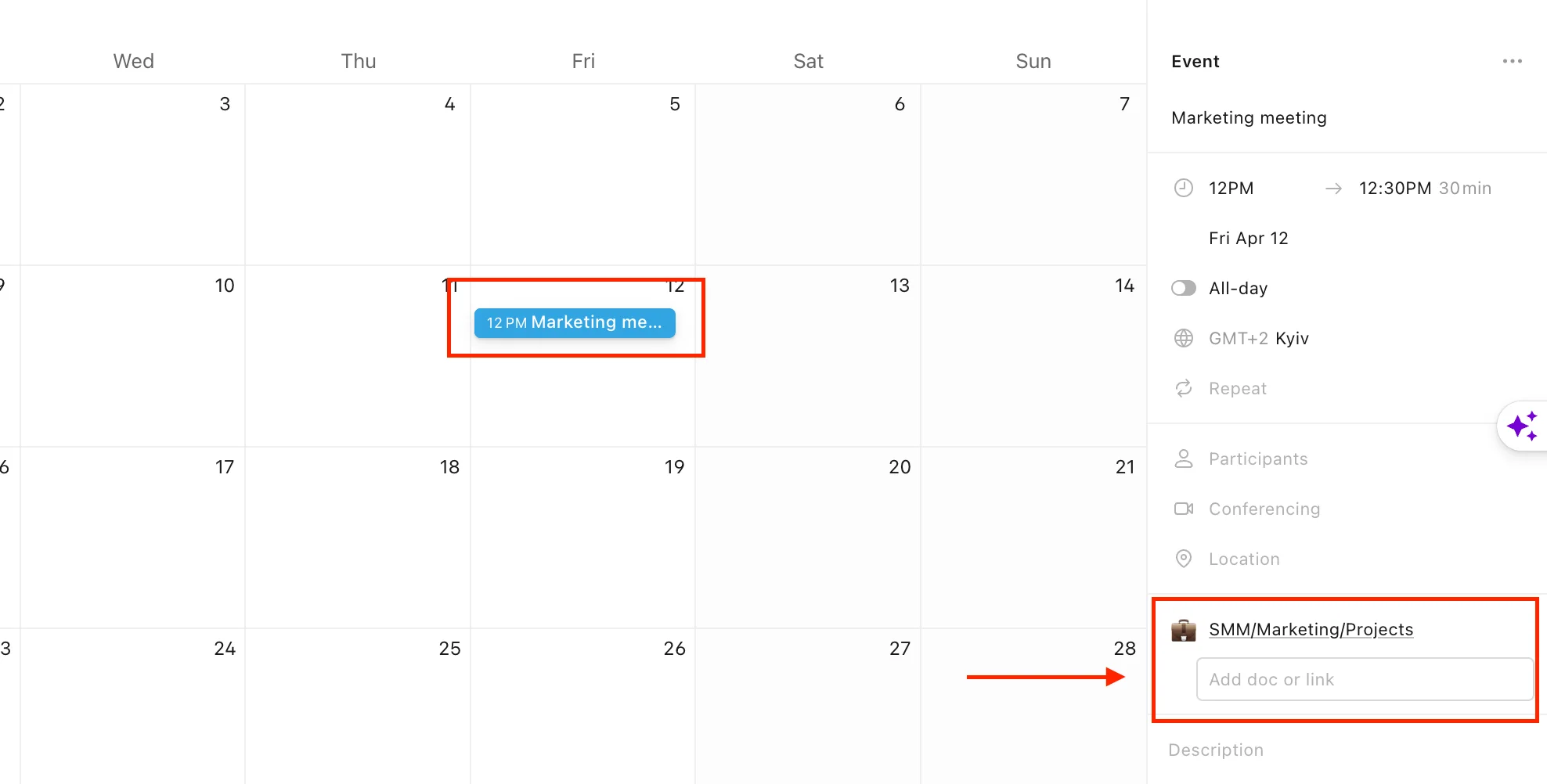
Understanding Limitations and Oversights
While integrating Notion Calendar with your databases, be aware of some limitations:
- Single date property visibility: Only one date property can be displayed at a time on the Calendar View.
- Multiple views, same database: You can have multiple Calendar views from the same database, each showing different date properties. However, the inability to rename these views can cause confusion when there are more than one from the same database.
- Editing limitations: You can modify dates within the app, but you cannot create new database entries.
- Web browser redirection: Currently, links in Notion Calendar open in a web browser by default, with no option to open in the app.
Working with Teams within Notion Calendar
When collaborating with your team, coordinating schedules can be a hassle, but with Notion Calendar, it's a whole lot easier. You don't have to share individual calendars to see when everyone is available. Simply integrate your colleagues' schedules into your own with just a few clicks. This way, finding the perfect time for meetings or collaborations becomes straightforward, streamlining teamwork and enhancing productivity.
Access Teammates Calendars
- Quickly access a teammate's calendar: In the left sidebar of Notion Calendar, click on the dot next to your calendar and choose "Show teammate calendar...". Search for and select your teammate's email. You can exit this view by pressing "esc" or clicking the "x" next to their calendar.
- Permanently add a teammate's calendar: For ongoing collaboration, right-click on their email in the calendar view and select "Pin to calendar list". To remove their calendar later, simply right-click and choose "Remove teammate from list".
- Scheduling 1:1 meetings made simple: To arrange a personal meeting, just drag your teammate's name from the Notion Calendar menu onto your schedule. Meeting details, such as conferencing information, will automatically be filled in based on your predetermined preferences.
Managing Time Zones for Global Teams
Notion Calendar is built for global collaboration, making it easy to manage time zones.
To add a time zone:
- Open the Notion and click the '+' icon next to your current time zone, usually at the top of your calendar view.
- Choose the region or city that represents the time zone you need.
- The new time zone will display alongside others, distinguishable by abbreviations like 'EST', 'IST', etc.
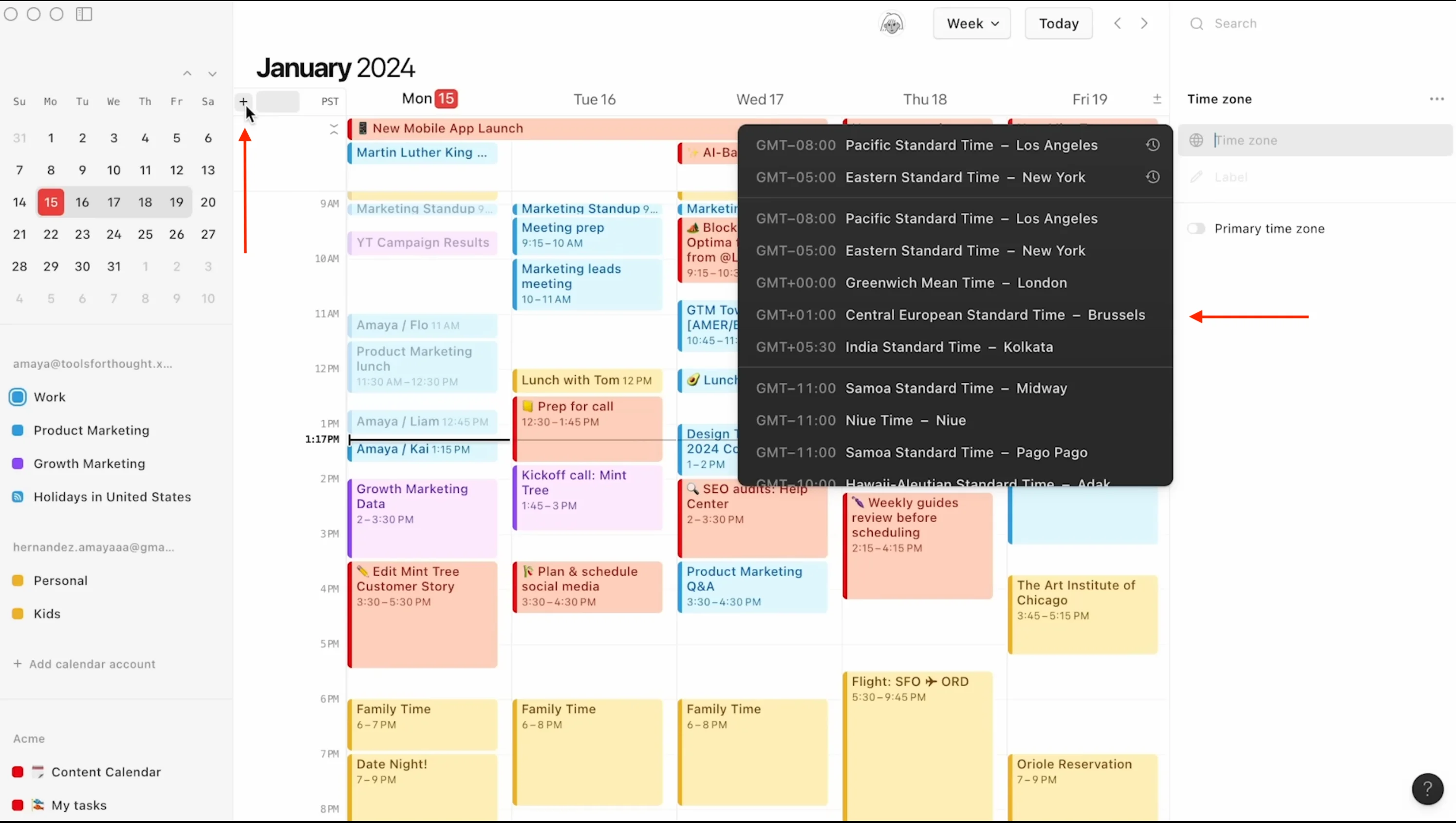
Additional Time Zones
- Limitation: Notion Calendar typically allows only four time zones to be displayed.
- Extend Capacity: To add more, use Ctrl/⌘+ K and enter defaults write ui maxTimeZones [number], replacing [number] with your desired total time zones.
When you start using Notion Calendar, it automatically detects your primary time zone from Google Calendar. However, any changes made to time zones in Notion Calendar are independent and do not affect your Google Calendar settings.
Share Availability with Team Members
Notion Calendar offers a seamless way to communicate your free times for meetings, both on desktop and web platforms. This feature is designed to simplify the process of scheduling meetings, making it more efficient for everyone involved.
Here’s how to let others know when you’re available:
- Use the 'Share availability' option in the right context panel or the 'S' keyboard shortcut.
- Click on your available slots in the calendar.
- Name the event, add duration, time zone, and conferencing details.
- Click 'Create' to reserve these slots, ensuring you’re free for these potential meetings.
With just a few steps, you can efficiently communicate your free times, streamlining the process of arranging meetings.
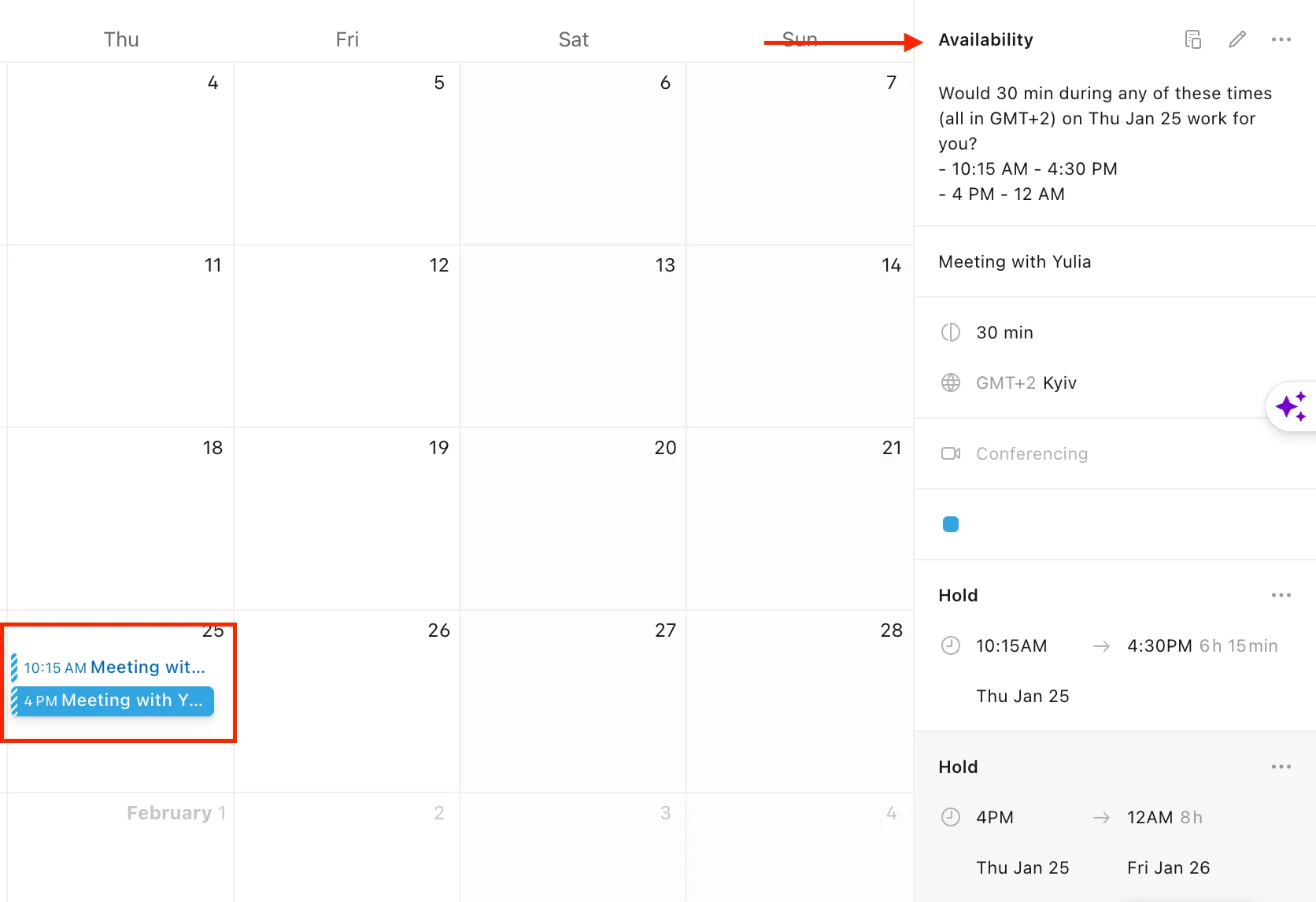
4 Best Use Cases for Notion Calendar (with templates)
Notion Calendar is becoming even more powerful when you use it with Notion's templates. This makes it easy to keep an eye on important events both in Notion and in the Notion Calendar..
Now, let's explore four great ways to use Notion Calendar.
Manage Tasks and Projects Dates
Adding your tasks and projects to Notion Calendar is incredibly convenient and brings a lot of benefits to your productivity and organization, such as:
- You can have all your important dates, events, and now your tasks and projects in one centralized location.
- Effortless rescheduling. If something comes up, simply drag and drop a task or project to a new date or time.
- It provides clear visibility of your available time slots based on your Calendar tasks.
- Time blocking. Allocate specific time blocks for your tasks and projects directly in your calendar. This helps you prioritize and allocate dedicated slots for focused work, ensuring you make progress on your most important tasks.
You can easily integrate all your tasks and projects from our all-in-one Notion system, Second Brain 2.0 template to Notion Calendar. This helps you work more efficiently and manage your time better because everything you need is in one place. It improves your focus and productivity by aligning your daily tasks with your bigger goals.
{{cta-2}}
In general, this integration changes how you organize and do tasks, making your work smarter and more successful.
Additionally, if you provide start and end times for tasks, they will appear as blocks on your calendar. If you make changes in your calendar, you'll see the updated dates reflected in Notion as well. It's incredibly convenient!
View Birthdays and Anniversaries Reminders
Remembering birthdays and anniversaries just got easier now with Notion Calendar.
You can connect your Personal CRM Template, where you store contacts and their special dates, directly to your Notion Calendar. This means all those important dates automatically show up in your calendar. No need to manually enter each birthday or anniversary – it's all integrated for you.
Now, keeping track of these occasions is effortless and deeply integrated into your daily schedule.
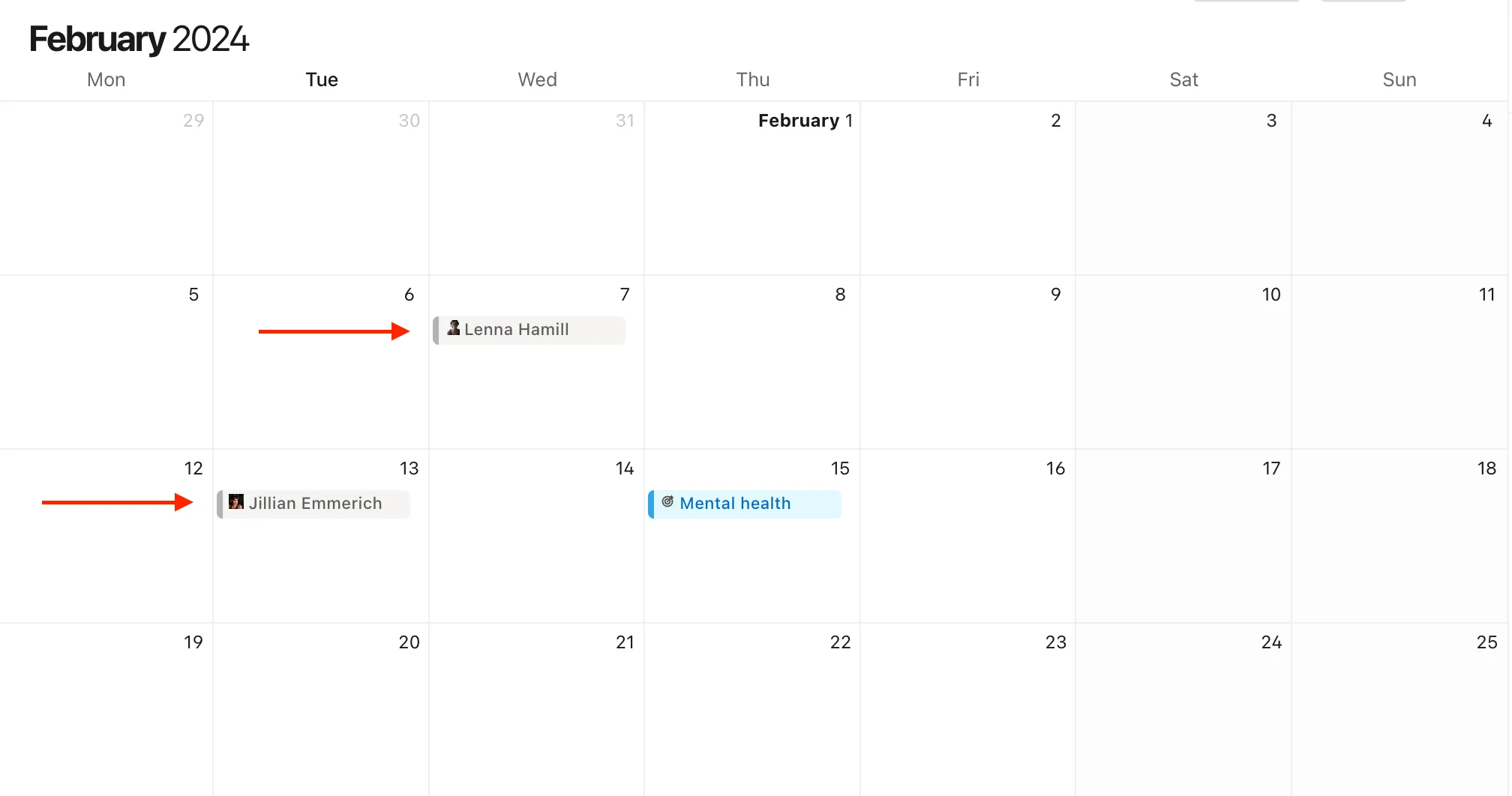
To add Personal CRM Template to Notion Calendar:
- Open the Personal CRM Template in Notion and select the calendar view.
- Click on the "Open to Calendar" button.
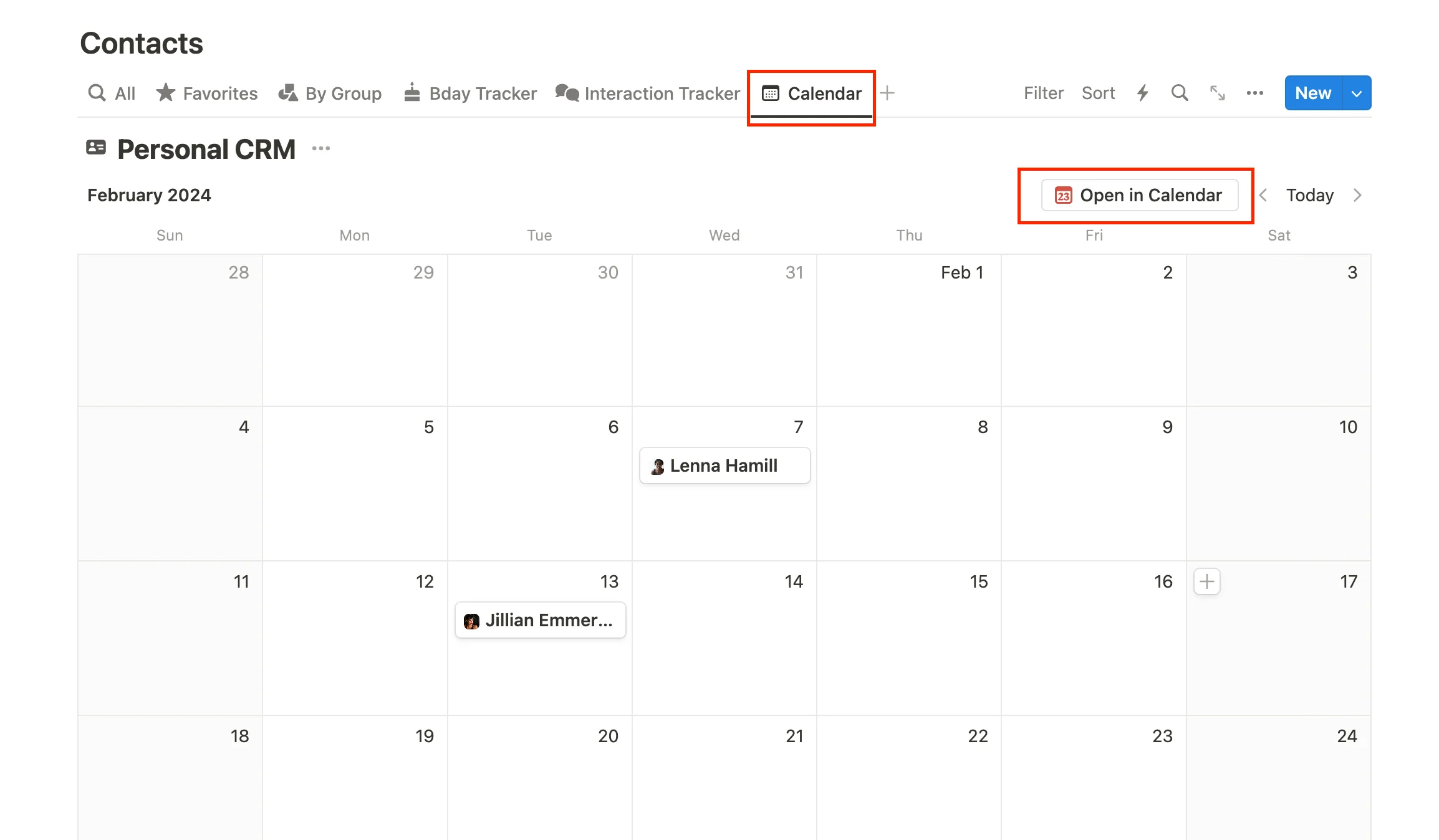
Alternatively, you can manually add this database to Notion Calendar. In the app, click on the three dots next to your workspace name and select "Add Notion database.”
View Subscription and Expense Renewals
Expenses and subscriptions can also be transferred to the Notion Calendar to ensure they are not forgotten and can be properly declined or renewed. This allows for easy monitoring of recurring subscriptions and expenses.
You can connect your detailed Subscription Tracker Template to your Notion Calendar. This smart move brings all your subscriptions and regular expenses into one view. Get automatic reminders about renewal dates right on your calendar. This way, you can effortlessly decide whether to continue or cancel a subscription. The combo of the tracker and the calendar not only assists in budgeting but also ensures you're always prepared for upcoming financial commitments.
Manage Content Publishing Schedule
To ensure you meet your content publishing deadlines, you can also utilize the Notion Calendar tool. It serves as a helpful reminder of when and what content you need to post, along with other important meetings and plans for the day.
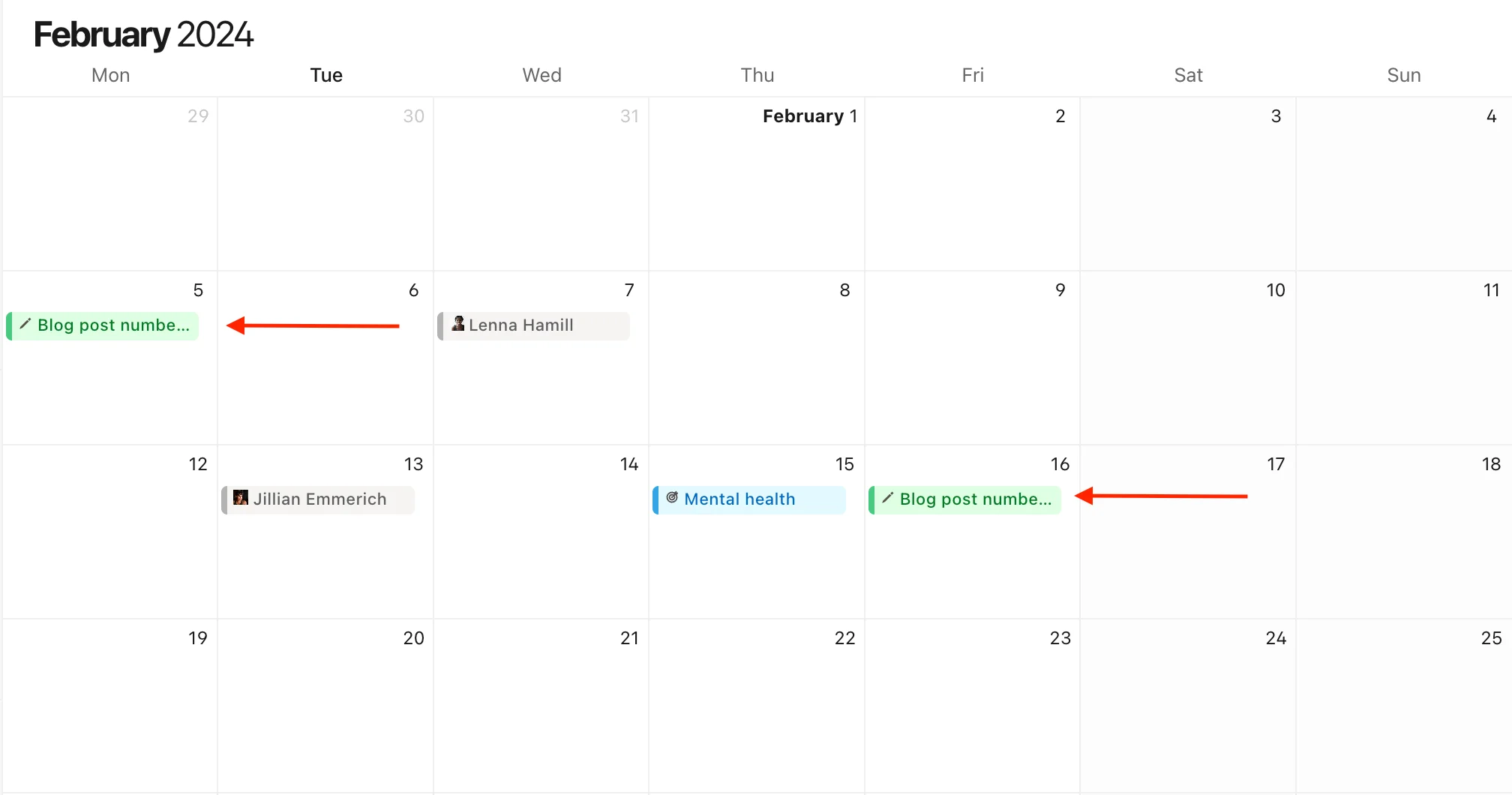
By linking your Content Planner & Calendar template to the Notion Calendar, you create a dynamic content calendar that keeps track of all your social media posts.
This connection serves as your daily guide to what needs to be posted, shared, or promoted across different platforms. It’s perfect for maintaining a consistent online presence, ensuring your social media strategy stays on track and aligns with other scheduled commitments.
A Final Word about Notion Calendar
Now you have all the knowledge to start using Notion Calendar easily.
Notion Calendar offers new and interesting possibilities for Notion users, with many game-changing features already available in this first version.
Additionally, there are many potential improvements that the Notion team will likely release in the coming weeks or months, including the ability to connect other calendars besides Google Calendar.
My opinion here is that, even in its current form, Notion Calendar stands out as a well-crafted and intuitive calendar tool that brings a fresh perspective to your scheduling and planning.
So go ahead, give Notion Calendar a try, and see how it can bring a little more order and a lot more ease into your daily routine.


.webp)


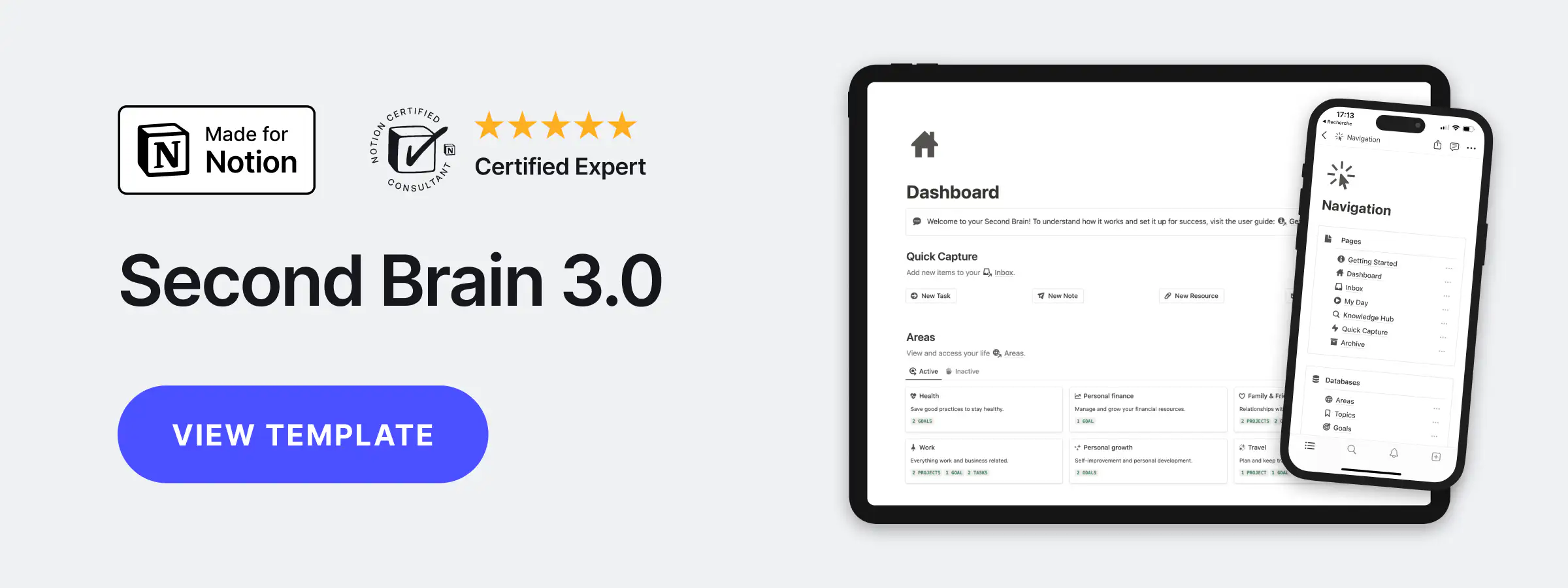



.webp)


